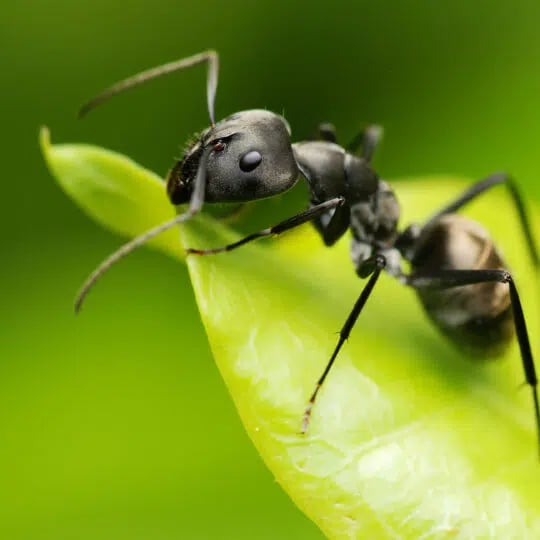What Are Those Big Black Ants?
All About This Pest

While you might be used to seeing petite black and red ants, every once in a while you might run into one that is a giant in comparison. Learn about how to identify big black ants, what their presence means, and if they are dangerous for you or your family.
All About Big Black Ants
Name: Carpenter ant
Color: Black, sometimes with red, brown, and yellowish hues
Size: They can reach up to 1/2″ long
The problem with carpenter ants: Carpenter ants get their name from how and where they build their colonies: in wood. The destruction they cause is often compared to that of termites, though this pest does not eat the wood.
Signs of an infestation: Unfortunately, while building their nests they are causing damage to the structure in which they are making their home. Here are some things to look for when determining if you have an infestation:
- Sawdust-like material (frass). As ants burrow through wood, they leave behind piles of wood shavings that may lead back to the nest.
- Soft crunching or rustling noises. If you listen carefully, you might be able to hear noises can inside walls or wooden structures.
- Seeing the ants. If you see a carpenter ant, there are likely more nearby as they live in colonies.
How to prevent an infestation:
- Fix leaks in the roof or plumbing.
- Make sure mulch, wood, and leaf piles are not up against the exterior of your home.
- Trim branches and limbs so that they don’t touch your home’s exterior, otherwise, they can act as a bridge for ants to crawl from trees to the house.
- Replace any decaying or rotting wood in window sills, doorways, or beams.
- Remove dead trees or rotting tree stumps from your yard.
- Call Green Pest Solutions. Our Green Band Protection System helps prevent infestations from pests of all kinds, including carpenter ants. This program provides year-round preventative care so you never have to worry about whether or not you’ll be faced with a problem due to this pest’s destructive behavior.